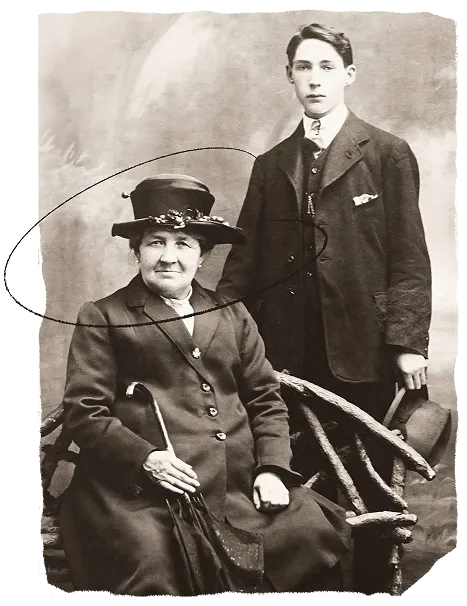Your words,
on-brand and compliant, always!


Glowssary is the easiest way to leverage your terminology to finally achieve brand consistency and compliance for all company-generated content.
No more spreadsheets everyone forgets about
No more unseen updates of terminology
NO MORE ENDLESS TRAINING SESSIONS

GLOWSSARY IN ACTION

AS SIMPLE AS A SPELLCHECKER, RIGHT WHERE THE MISTAKES HAPPEN TO FIX ANY CONTENT BEFORE IT'S EVEN SHARED
Hall of
shame


Instant, painless
content compliance and
brand consistency

Secure, easy, and
global by design

Browser based
We can't get access to your content.
MULTILINGUAL
Works in 27 languages.
ALWAYS UP TO DATE
Syncs several times a day.
Secure, easy, and
global by design

Browser based
We can't get access to your content.
Multilingual
Glowssary works in 6 languages.
Always up to date
Syncs several times a day.

Find your pain

You have precise terminology, but waste a lot of time and budget on internal or external content reviews

You've revamped your brand identity, but your colleagues are having trouble integrating the new positioning and terminology.

Your business is regulated, and you must ensure no one uses certain words that could get your company into trouble.

You manage translations and struggle to keep multilingual glossaries updated and ensure teams comply with them.


Trendsetting and iconic brands (THAT COULD) use Glowssary
Meanwhile, we will be delighted to get in touch with you
FAQ


A glossary is a collection of words and terms that are important to a company. It can be mono or multilingual depending on the markets addressed by the business. A glossary that is built properly should have product names, features, special projects, acronyms, brand names, baselines, and anything specific to business communication.
A well-crafted glossary is not just a list of terms; it's a living document that evolves with the company and its industry. It reflects the company's commitment to clear communication and can be a valuable resource for everyone connected to the business (marketing, sales, customer support...). By having a comprehensive and accessible glossary, you can ensure that your company's unique language and knowledge are preserved and understood by all.
Building a glossary is key for all companies, regardless of size. It serves as a reference tool to ensure everyone has a common understanding of key concepts, jargon, acronyms, and phrases used within the organization.
The terms included in a company glossary can vary widely depending on the industry, the nature of the business, and the specific needs of the company. However, here are some general categories and examples of terms that might be found in a company glossary:
- Brand Name and Variations: The official name of the company, any abbreviations commonly used, and any variations or former names that might still be in circulation or should be avoided.
- Product Names: Names of all the products or services the company offers. This should include current products as well as any notable past products that might still be relevant.
- Feature Names: Specific features of the products or services. For tech companies, this might include software features or hardware components. For service-oriented companies, it could include different service tiers or specialized offerings.
- Project or Initiative Names: Names of internal projects, campaigns, or initiatives that are frequently referenced within the company. This can include past, present, and upcoming projects.
- Taglines and Slogans: Any marketing taglines, slogans, or catchphrases associated with the company or its products. Past taglines that shouldn't be used anymore should also be included.
- Internal Terminology: Terms used to describe internal processes, departments, or concepts that are unique to the company. For example, a unique performance review process or a special project management system.
- Industry-Specific Jargon and Acronyms: Terms that are commonly used within the industry but might be unfamiliar to outsiders.
Trademarked Terms: Any terms or phrases that the company has trademarked, which need to be used correctly to maintain legal protection.
- Proprietary Technologies or Methodologies: Names of any proprietary technologies, methodologies, or processes developed and used by the company.
- Customer Segments or Personas: Specific terms or names used to describe different customer segments or buyer personas identified by the company for marketing and sales purposes.
- Company Culture and Values: Key phrases or terms that are central to the company's culture and values. For example, a unique term that encapsulates the company's approach to customer service or innovation.
- Another very important point is to include some forbidden terms. These are terms that you absolutely do not want to use in your documents like old tag lines, discontinued products, etc.
Glowssary is a multi-fold project:
- Webapp: It helps you store your company glossary or glossaries online and share it with your coworkers or contractors that need to have access to it. Depending on the rights each of these users has, they can add and edit terms in the glossary, comment on the choices made to improve it, or simply read the glossary.
- Chrome extension: Users can install it on their browser to check their content on multiple websites to make sure the terminology is appropriate: no forbidden words, proper case, no typos.
Both tools work together to make sure everyone respects the branding terms set in place for a more consistent message.
Glowssary is native to many languages (English, French, German, Italian, Spanish, Portuguese, etc.). If you create a glossary with terms in those languages, Glowssary will work its magic like a charm on all your content.
Other languages will be added soon, but if you have a special request, please let us know.
Privacy is very valuable. This is why the Chrome extension works locally on your browser. Your glossary is loaded in your browser, and the checks are done within your browser. Your content, whether generic or sensitive, never transits because of Glowssary.



























